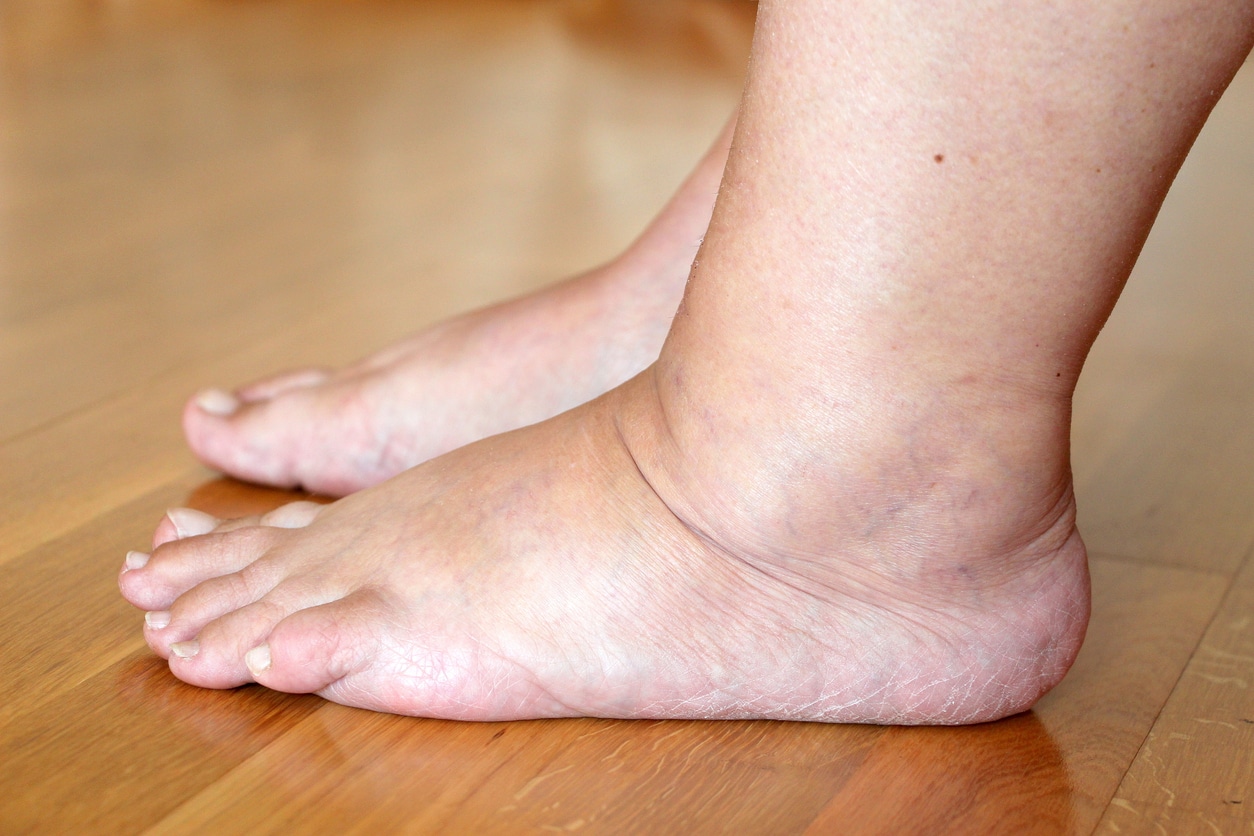Swelling During Pregnancy

As the body undergoes a multitude of changes during pregnancy, one common experience many women face is swelling. This condition, also known as edema, can manifest in various parts of the body, most notably in the feet, ankles, and hands. The sudden and noticeable increase in swelling can be both unsettling and uncomfortable, prompting many expectant mothers to seek understanding and relief.
Understanding the causes behind swelling during pregnancy is crucial for managing its effects. One primary reason is the significant increase in blood volume, which can be up to 50% higher than pre-pregnancy levels by the end of the third trimester. This surge is the body’s way of supporting the growing fetus, preparing for blood loss during delivery, and meeting the increased metabolic needs of the mother. However, this expansion can sometimes lead to fluid leaking out into the tissues, resulting in swelling.
Another factor contributing to swelling is the pressure exerted by the expanding uterus on the veins in the pelvis and legs. This compression can impede blood flow back to the heart, causing fluid to accumulate in the lower extremities. Furthermore, hormonal changes, particularly the increase in progesterone levels, can affect blood vessels, leading them to relax and potentially leak fluid into surrounding tissues.
In addition to these physiological changes, lifestyle factors can also play a role in the severity of swelling. For instance, standing or sitting for long periods can exacerbate fluid accumulation in the legs and feet, as gravity can cause fluid to pool in these areas. Similarly, a diet high in salt can lead to water retention, increasing swelling.
Despite the discomfort it causes, mild swelling is generally considered a normal part of pregnancy. However, it’s essential to monitor its progression and discuss any concerns with a healthcare provider. Severe or sudden onset of swelling could be indicative of more serious conditions, such as preeclampsia, a pregnancy complication characterized by high blood pressure and signs of damage to another organ system, most often the liver and kidneys.
To manage swelling during pregnancy, several strategies can be employed. Staying hydrated by drinking plenty of water might seem counterintuitive, but it helps the body to better regulate fluid balance. Reducing sodium intake can also minimize water retention. Regular physical activity, such as walking or swimming, improves circulation and helps prevent fluid from pooling in the legs. Elevating the feet above the level of the heart several times a day can provide relief by reducing swelling through gravity’s assistance in returning blood to the heart.
Wearing comfortable shoes and avoiding tight clothing around the wrists and ankles can also help reduce discomfort. For some women, support stockings may be recommended to improve blood flow. Limiting time spent standing or sitting and taking regular breaks to rest can alleviate pressure on the veins and reduce swelling.
In terms of dietary adjustments, incorporating foods that are natural diuretics, such as asparagus, parsley, and cucumber, might help in reducing fluid retention. Furthermore, maintaining a balanced diet rich in essential nutrients supports overall health and can help manage pregnancy-related changes.
While swelling is a common symptom of pregnancy, its impact should not be underestimated. Beyond the physical discomfort, it can also affect a woman’s self-esteem and mobility, potentially limiting her ability to engage in daily activities. Therefore, it’s vital for expectant mothers to discuss their experiences with their healthcare providers, not just to address medical concerns but also to seek support and guidance on managing swelling effectively.
The journey through pregnancy is unique for every woman, with each experiencing a distinct array of physical, emotional, and psychological changes. As such, the approach to managing symptoms like swelling must be personalized, taking into account individual health needs, lifestyle, and personal comfort. By combining medical guidance with self-care strategies, women can better navigate the challenges posed by swelling, ensuring a healthier and more comfortable pregnancy experience.
What are the primary causes of swelling during pregnancy?
+The primary causes include increased blood volume, pressure from the expanding uterus on veins, and hormonal changes. Lifestyle factors such as prolonged standing or sitting and a high-salt diet can also contribute to swelling.
How can I manage swelling during pregnancy?
+Strategies to manage swelling include staying hydrated, reducing sodium intake, engaging in regular physical activity, elevating the feet, wearing comfortable clothing, and considering support stockings. A balanced diet and regular breaks to rest can also provide relief.
When should I be concerned about swelling during pregnancy?
+While mild swelling is common, severe or sudden onset of swelling, especially if accompanied by other symptoms such as high blood pressure or discomfort, should be discussed with a healthcare provider, as it could indicate a more serious condition like preeclampsia.
In conclusion, swelling is a prevalent symptom during pregnancy, stemming from physiological changes and potentially exacerbated by lifestyle factors. By understanding its causes and implementing effective management strategies, women can mitigate its impact, ensuring a more comfortable and healthy pregnancy journey. Open communication with healthcare providers is key, not only for addressing medical concerns but also for accessing personalized advice and support. As each pregnancy is unique, so too must be the approach to managing its associated symptoms, with flexibility and vigilance being essential components of prenatal care.



